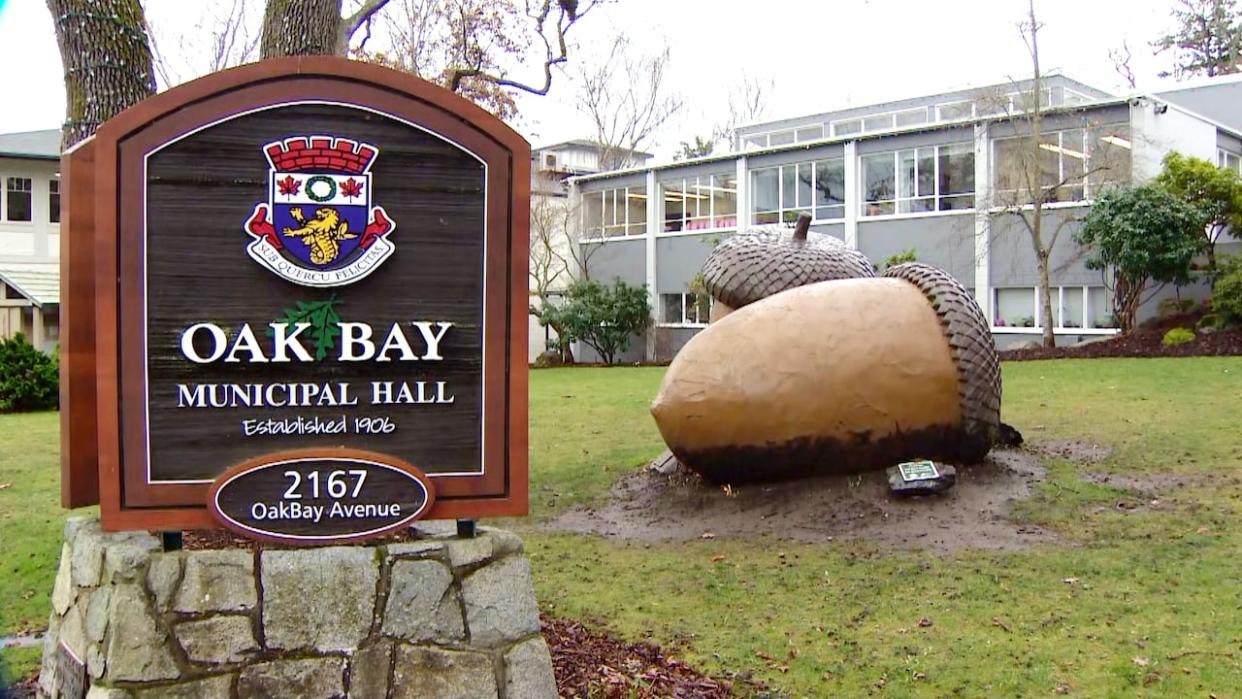Oak Bay grapples with mandate to add 664 new housing units by 2028

The charming community of Oak Bay, near Victoria, is known for a lot of things: a picturesque waterfront, historic golf courses, exclusive private schools, and street after tree-lined street of nice houses.
Real estate agents like to use the word "exclusive" when selling Oak Bay properties, code for one of the most affluent places to live in British Columbia. A typical value of a single-family home runs at $1.64 million in Oak Bay, according to 2024 B.C. Assessment data, making it the priciest housing market on Vancouver Island.
But exclusive Oak Bay may be getting a lot more inclusive in the near future. That is, if it finds a way to meet the provincially mandated target of adding 664 net new housing units in the next five years.
Officials in the predominantly single-family home municipality don't think it will be easy.
"If you want to build multi-family where there isn't, you have to go around and buy, say, four individual single family lots just to put up a relatively small apartment building," said Oak Bay Mayor Kevin Murdoch. "Those lots in Oak Bay are expensive."
Four months ago, the province rolled out housing targets for 10 B.C. municipalities as part of a major push to address the housing crisis. Oak Bay, with a population of 18,000, is by far the smallest community on the list.
The province also brought in legislation to allow multi-unit buildings on properties zoned for single-family use.
Adding 664 new units by 2028 could be a monumental challenge for Oak Bay, considering the community registered only 189 housing starts in the previous five years, according to Canada Mortgage and Housing.
Additionally, it's been seven years since the last multi-family complex was built in the municipality.
"Traditionally, in Oak Bay, it's been close to impossible to build any kind of multi-family housing," said Eric Protzer, senior economics research fellow at Harvard University.

Oak Bay has the highest single-family home values on Vancouver Island, according to B.C. Assessment. (Michael McArthur/CBC)
"The vast majority of land is zoned exclusively for single-family use. The approvals process can be very drawn out ... You can imagine how that adds to the final cost and simply drives up housing prices while failing to adequately expand supply."
The CEO of Victoria-based real estate developer Large & Co. said in order to hit the target, Oak Bay leaders need to change their mindset and locals need to be less NIMBY.
"I think in Oak Bay, [the attitude] is shifting," said Kim Colpman, who lives in Oak Bay. "There is a vocal minority that is very loud and proud and it does make it difficult to move forward."
"From my perspective as a developer, if [city council] sends a message to the development community that they're open for business, things could happen. They need to say that we are open to more density, we're open to creative in-fill," she said.
In a public address posted online in November, Murdoch called the province's housing goals "well-intentioned," but said they undermine democracy by subverting local decision-making.
He said developers won't get the same return on investment in Oak Bay as in big cities building high-rise towers, and has concerns about the timeline.
"Five years is tight to get that number," he said.
According to the province, if a municipality doesn't meet its assigned target, it will step in to make the necessary decisions to increase local housing stock.
"We worked closely with all the communities," said Housing Minister Ravi Kahlon. "Some just don't feel they can make the targets or just don't have the interest. Our message to them is everyone has to be part of the housing solution."
Kahlon said cheques are going out to help fund municipalities in modernizing their community plans and internal systems as a first step.
Targets for 10 more municipalities are set to be announced in the coming weeks, according to Kahlon.


